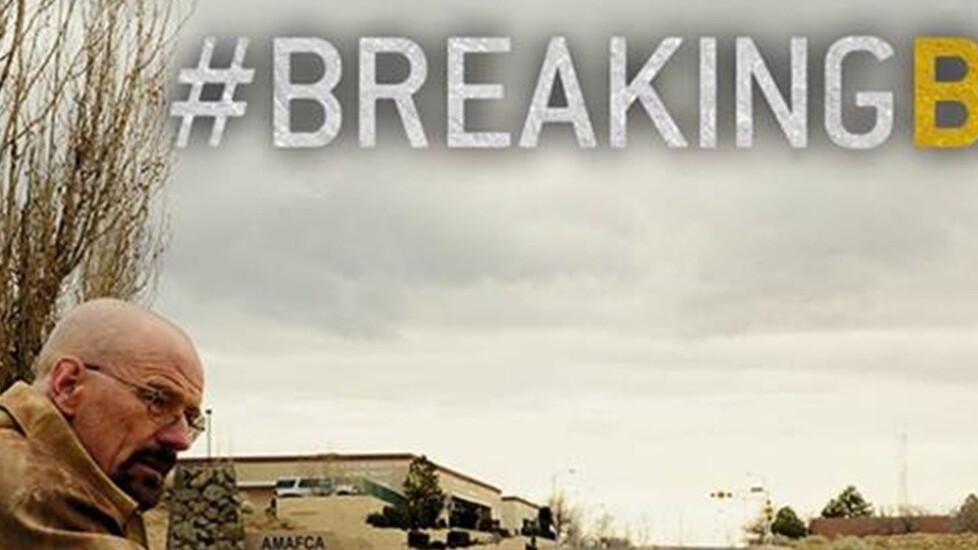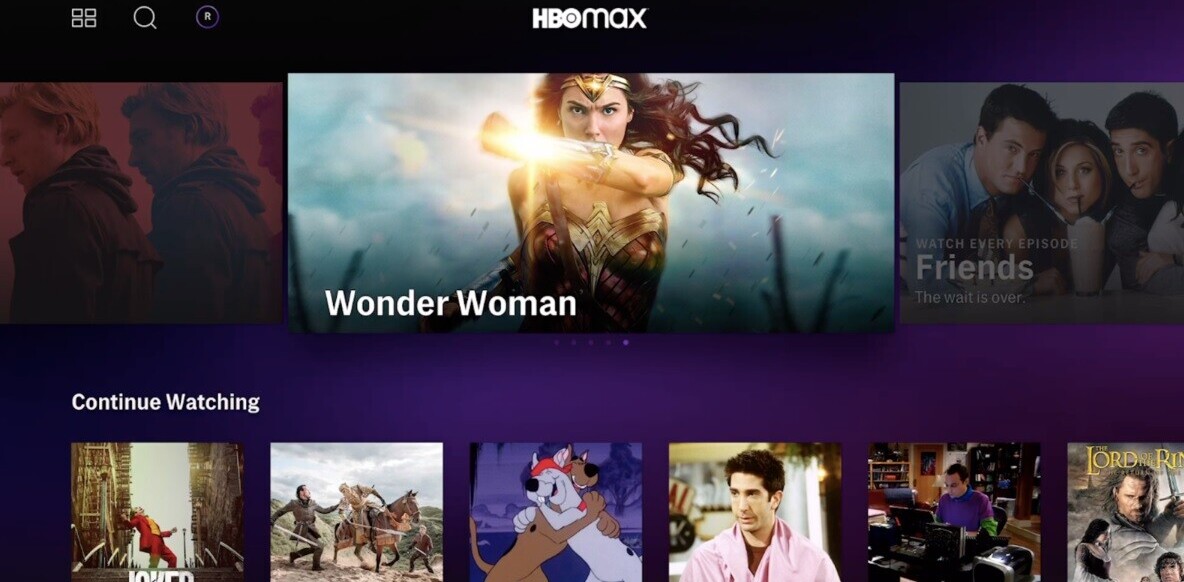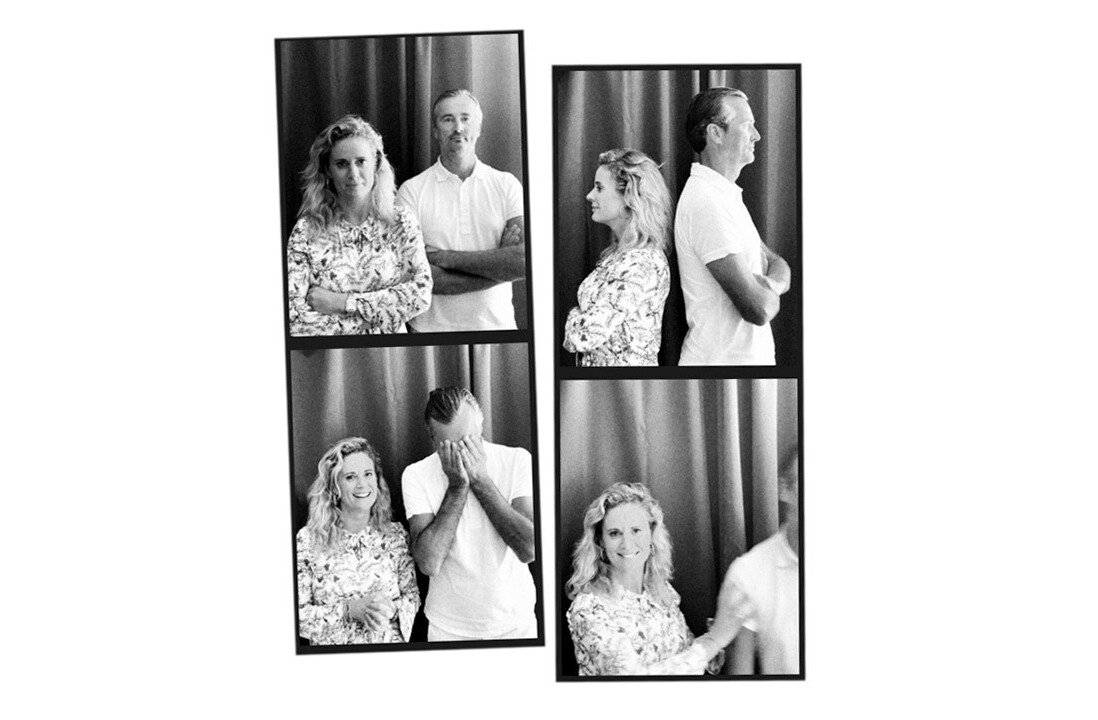
In case you didn’t watch it — or are based outside of the US and playing catch-up, or in fact living under a stone — the final episode of Breaking Bad aired Sunday night in the US, bringing to an end one of the most talked-about TV series in recent times.
Many folks I know have boycotted Twitter — specifically — in order to avoid accidentally running into spoilers or hints as to how the program closed out before they have a chance to watch for themselves. Yet they feel freer to continue to mingle on Facebook, perhaps with a warning to friends rather than full-on avoidance.
Through Breaking Bad, Twitter’s presence in the TV world is clearly seen, and it’s huge — the company says Breaking Bad generated 1.24 million Tweets and 10.3 million viewers. At this time though, Facebook is trying to beat out the microblogging platform, but is it too late to the game?
Twitter’s Simplicity
Twitter is perhaps the ideal accompaniment to TV because it is so simple.
Tweets are a maximum of 140 characters, which makes them ideally suited for a quick comment or a reaction as you watch a TV show or sports match.

Likewise, it is easy to send a tweet via a mobile, desktop or Web app, literally seconds after a thought enters your head — for better or for worse, I might add.
A user’s Twitter feed is (for now) centered around other people’s messages in a way that Facebook, with its multimedia-centric approach, just isn’t. It’s easy to scan through messages from people you follow to see who is watching along — in fact, it’s even easier if you use a client with real-time notifications.
Twitter’s hashtag system makes it easy (that word again) to find related tweets while you can set up lists, custom columns or search terms to quickly see what other people are saying too.
Plus, the people you follow might retweet messages from others, giving you another set of alternative takes on storylines, developments or chatter the tweeps are focusing on.
(That’s an extra bonus when everyone in the entertainment industry is active on Twitter, sending out bitesized messages that appeal to viewers and fans.)
Last episode ever of Breaking Bad. It would not be possible without all of you. Thank you all for the amazing ride. Love you Vince!!!!
— Aaron Paul (@aaronpaul_8) September 30, 2013
Well, this is it. The last episode ever of Breaking Bad. Thank you for sharing this ride with me. Without you we never would have lasted.
— Bryan Cranston (@BryanCranston) September 29, 2013
Compare that to Facebook, where there are more people but information is less accessible, particularly in real-time.
While it is true that you could be part of a Breaking Bad fan group, for example, and post and respond to others about developments there, a big part of the spontaneity of thought is lost when views and opinions are bound within Facebook’s threaded post/comment system.
Yes, you can click through hashtags on Facebook to surface similar content, in theory. But it remains to be seen if Facebook users are really using the feature in any great number. Recent reports suggest that they are not.
Reach is Facebook’s key weapon
The fact remains, however, that Facebook has become the online yellow pages of the Internet generation. To that point, it’s rare to find a person who doesn’t have a profile — usually that’s down to a particular personal objection or mindset — which gives Facebook one huge advantage when it comes to social data.
In its current incarnation, Facebook is ideal for communicating with a network of known friends, but Twitter is the ‘global town hall’ where people come to share ideas and opinions — no matter how trivial or small.
TV networks should dig into data offered by Twitter, Facebook and other social networks for audience insight, such are the nuances of each social network. For now, however, Twitter seems to have the edge for both publishers and readers — but Facebook is clearly gunning to up its profile and to tip the scales away from Twitter.
Facebook ‘more representative of population’
Earlier, the Wall Street Journal reported that Facebook will provide weekly engagement reports related to TV shows to key broadcasters in the US for the first time.
That follows the recent release of tools that give broadcasters greater access to Facebook user data — but, in this case, Facebook will do all the work for the selected US networks, handpicking and delivering them evidence that its social network is worthy of futher investment from a brand and marketing point of view.
The reports won’t be public, but they will show how Facebook’s one billion-plus active users are responding to TV content, what they are liking, sharing and commenting on.
While it has a far smaller pool of users, Twitter has traditionally been the medium most closely associated with real-time discussions, whether that be related to breaking news, sports or TV shows as they are broadcast.
Yet, Facebook is undaunted. A spokesperson did everything but name Twitter when he told the Journal:
The conversation [on Facebook] is being generated by a group that is much more representative of the general population — that means we should have a better signal as it relates to ratings.
Ouch. Facebook’s sales pitch is pretty clear: by being more popular, it should be the best option for TV networks.
The next question is influence. Thus far, the jury is still out on whether chatter on Twitter and Facebook can actually boost TV ratings — but that’s a different topic.
Headline image via Breaking Bad Facebook Page (irony…oh irony)
Get the TNW newsletter
Get the most important tech news in your inbox each week.






